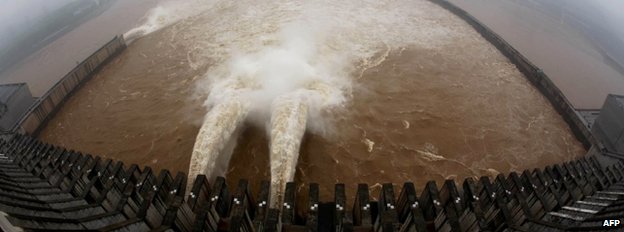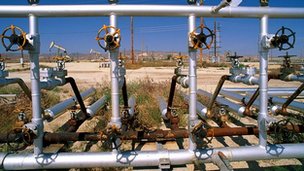Decepticon
Rookie
- Jan 11, 2012
- 1,138
- 189
- 0
- Banned
- #1
WASHINGTON (CNN) -- With less than two weeks before federal money runs out for transportation projects across the country, a partisan showdown is developing between Senate Democrats and House Republicans over passing a new bill.
The standoff, based on sharply differing views about the overall expense of the bill and how to pay for it, jeopardizes thousands of road and bridge construction projects.
On Wednesday, House Transportation Committee Chairman John Mica, R-Florida, said the House would soon pass a three-month extension of existing funding to provide time for negotiations over a longer-term bill.
But that idea was rejected by Senate Majority Leader Harry Reid, D-Nevada, who said Tuesday he was "inclined not to" pass a temporary funding extension. Instead, Reid said House Republicans should accept a two-year, $109 billion bill that recently passed the Senate with broad bipartisan support.
Reid said tea party activists are to blame for the House's refusal to consider the Senate bill.
Rep. Paul Ryan on GOP budget plan
Rep. Paul Ryan on GOP budget plan
"Millions of people depend on this highway bill that has passed the Senate on a bipartisan basis," Reid said. "They depend on it for their jobs. But it seems to me that the House has come to the conclusion, led by the House leadership, that they can't do anything unless they get a permission slip from the tea party."
Asked about Reid's refusal to consider a short-term bill, House Majority Leader Eric Cantor, R-Virginia, said Reid is taking a risk.
"I'm sure that Majority Leader Reid does not want to cause any disruption in the flow of transportation dollars to the states or into the federal programs," Cantor said.
House passage of a temporary bill could put Democrats under enormous pressure not to let funding dry up. Permitting thousands of construction jobs to go idle, just as the economy begins to recover, could backfire on lawmakers, especially those seeking re-election.
House GOP leaders are having trouble getting enough support for their five-year, roughly $260 billion version of the usually popular bill, partly because fiscal conservatives say it's too expensive and should be scaled back. House Democrats, meanwhile, say the bill is a non-starter because it calls for drilling in the Arctic National Wildlife Refuge.
House Speaker John Boehner, R-Ohio, said recently it was possible that the House would take up the Senate bill, partially as a way to try to persuade wavering Republicans to come around and support the House GOP version. A three-month extension would give Boehner and his lieutenants more time to try again to round up votes.
"A short-term extension will give us time to build support for real, long-term reforms, including linking transportation funding to expanded American energy production -- which would lower costs, reduce our dependence on foreign energy, and create millions of American jobs," Boehner's spokesman, Michael Steel, said.
Mica told reporters the House is expected to vote on the short-term measure next week before it leaves for a two-week recess.
Standoff in Congress threatens highway construction funding - CNN.com
Why a three month extension ? Why not pass the Senate version? Oh, because you need time to round up votes. Boner's spokesman even says it.
Is THIS the way you do business? Three month extensions? If you can't legislate in the interests of the people you are supposed to be serving because you are too busy playing petty politics, perhaps you should re-evaluate why you are in public office and ask why anyone would be STUPID enough to vote for people who act so selfishly.
The standoff, based on sharply differing views about the overall expense of the bill and how to pay for it, jeopardizes thousands of road and bridge construction projects.
On Wednesday, House Transportation Committee Chairman John Mica, R-Florida, said the House would soon pass a three-month extension of existing funding to provide time for negotiations over a longer-term bill.
But that idea was rejected by Senate Majority Leader Harry Reid, D-Nevada, who said Tuesday he was "inclined not to" pass a temporary funding extension. Instead, Reid said House Republicans should accept a two-year, $109 billion bill that recently passed the Senate with broad bipartisan support.
Reid said tea party activists are to blame for the House's refusal to consider the Senate bill.
Rep. Paul Ryan on GOP budget plan
Rep. Paul Ryan on GOP budget plan
"Millions of people depend on this highway bill that has passed the Senate on a bipartisan basis," Reid said. "They depend on it for their jobs. But it seems to me that the House has come to the conclusion, led by the House leadership, that they can't do anything unless they get a permission slip from the tea party."
Asked about Reid's refusal to consider a short-term bill, House Majority Leader Eric Cantor, R-Virginia, said Reid is taking a risk.
"I'm sure that Majority Leader Reid does not want to cause any disruption in the flow of transportation dollars to the states or into the federal programs," Cantor said.
House passage of a temporary bill could put Democrats under enormous pressure not to let funding dry up. Permitting thousands of construction jobs to go idle, just as the economy begins to recover, could backfire on lawmakers, especially those seeking re-election.
House GOP leaders are having trouble getting enough support for their five-year, roughly $260 billion version of the usually popular bill, partly because fiscal conservatives say it's too expensive and should be scaled back. House Democrats, meanwhile, say the bill is a non-starter because it calls for drilling in the Arctic National Wildlife Refuge.
House Speaker John Boehner, R-Ohio, said recently it was possible that the House would take up the Senate bill, partially as a way to try to persuade wavering Republicans to come around and support the House GOP version. A three-month extension would give Boehner and his lieutenants more time to try again to round up votes.
"A short-term extension will give us time to build support for real, long-term reforms, including linking transportation funding to expanded American energy production -- which would lower costs, reduce our dependence on foreign energy, and create millions of American jobs," Boehner's spokesman, Michael Steel, said.
Mica told reporters the House is expected to vote on the short-term measure next week before it leaves for a two-week recess.
Standoff in Congress threatens highway construction funding - CNN.com
Why a three month extension ? Why not pass the Senate version? Oh, because you need time to round up votes. Boner's spokesman even says it.
Is THIS the way you do business? Three month extensions? If you can't legislate in the interests of the people you are supposed to be serving because you are too busy playing petty politics, perhaps you should re-evaluate why you are in public office and ask why anyone would be STUPID enough to vote for people who act so selfishly.

